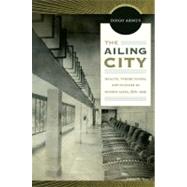The Ailing City
, by Armus, Diego- ISBN: 9780822350125 | 0822350122
- Cover: Paperback
- Copyright: 7/8/2011
The ways that tuberculosis was perceived, experienced, and talked about in late-nineteenth and early-twentieth-century Buenos Aires reflected not only fears of contagion and death, but also social and cultural concerns. These included a rapidly growing urban population, the moral development of the masses, and the increasing intrusion of the state into everyday lives. Diego Armus contends that the history of tuberculosis is inseparable from the discourses that sought to make sense of the disease. In the late nineteenth century, research into the contagiousness of the illness, the emergence of modern bacteriology, and the discovery of the Koch bacillus shed light on the source of the sickness. From then until a cure was discovered and widely distributed in the 1950s, the "white plague" was a recurring topic of conversation in Buenos Aires. The quest to find the cause, and then the cure, of the illness generated multiple theories and metaphors. Armus traces Argentines' ideas about tuberculosis as they were represented in literary works, the mass media, medical publications, tango lyrics, films, and poetry. He highlights perceptions of the epidemic specific to Buenos Aires by comparing them to understandings of tuberculosis in other urbanizing societies.






